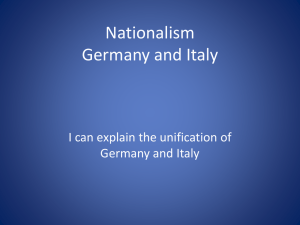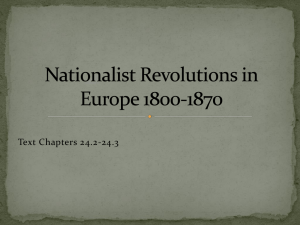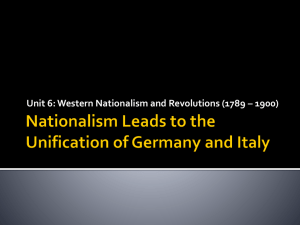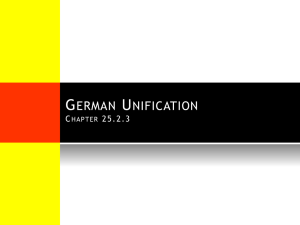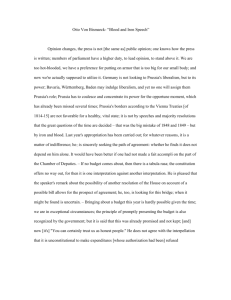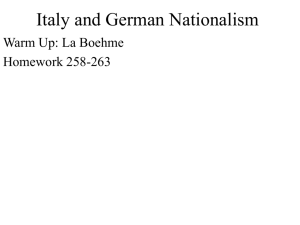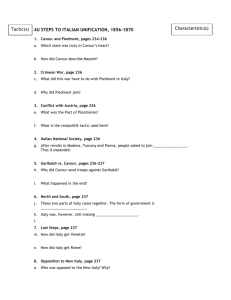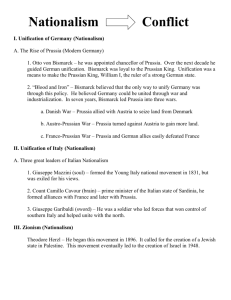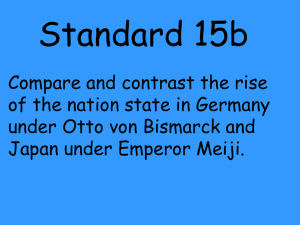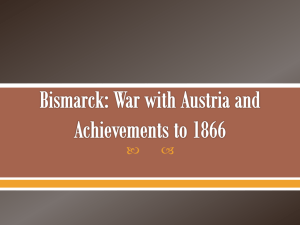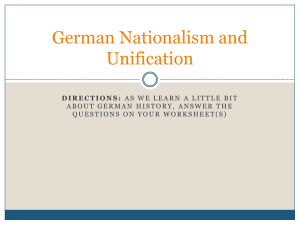Chp. 8 Section 3 Notes
advertisement
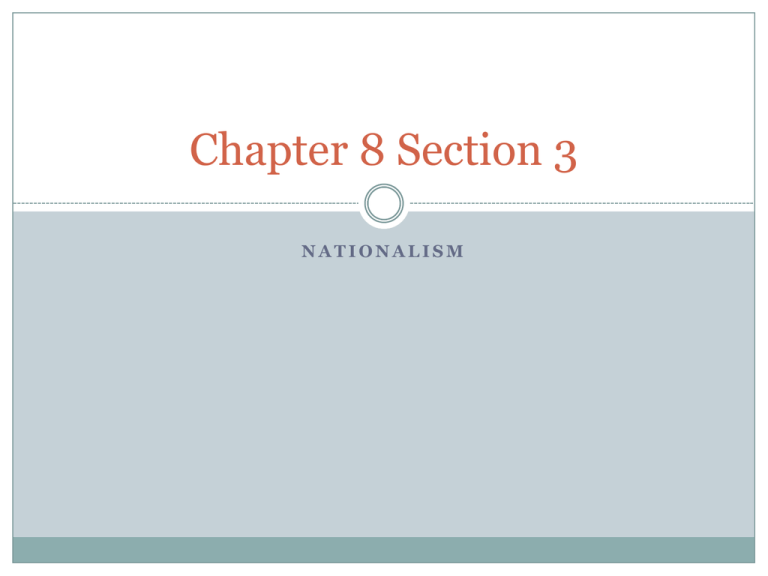
Chapter 8 Section 3 NATIONALISM Types of Nationalist Movements 1. Unification - Mergers of politically divided by culturally similar - Examples- Italy and Germany lands 2. Separation -Culturally distinct group resists being added to a state or tries to break away - Examples-Greece, Mexico 3. State- Building -Culturally different groups form into a new state by accepting a single culture. - examples- The U.S. and Turkey Nationalism Shakes Aging Empires 1. The Austrian Empire - Slovenes, Hungarians, Germans, Czechs, Slovaks, Croats, Poles, Serbs, and Italians - Austro- Prussian war lose German States - Hungarians pressure Emperor Francis Joseph to split empire in two (AustriaHungary) - After WWI breaks into several Nation- States 2. The Russian Empire - Ukrainians, Poles, Lithuanians, Latvians, Estonians, Finns, Jews, Romanians, Georgians, Armenians, and Turks - Try Russification but it backfires and strengthens nationalist sentiments - WWI and the communist revolution finally dissolve it in 1917 3. The Ottoman Empire - Greeks, Slavs, Arabs, Bulgarians, and Armenians -Give equal citizenship to all people in 1856 leads to many problems -Finally breaks up after WWI Italy 1. Camilo di Cavour named Sardinia’s Prime minister. - Wants to Unite Northern Italy - With France’s help defeat Austria and get’s all of Northern Italy except Venetia - Secretly helps Nationalist rebels in Southern Italy 2. Giuseppe Garibaldi - Nationalist leader captures Sicily in May 1860 - After Sicily goes north and captures more of Italy - Agreed to unite lands he had gained with those held by PiedmontSardinia. Sardinian king rules. 3. Italy United - 1866 Venetia taken -1870 Papal states under Italian control Germany 1. Prussia - Prussia mainly has a German Population - Had most powerful army in Central Europe - 1848 Berlin rioters force a constitutional convention and write a liberal constitution. 2. Otto von Bismarck - King Wilhelm needs support with new parliament -Chooses Otto von Bismarck a conservative Junker to be his Prime Minister -Bismarck master of realpolitik- “the politics of reality” tough power politics with no room for idealism - Bismarck declares he will rule without the consent of parliament and without a legal budget -1864 Prussia forms and alliance with Austria and goes to war with Denmark- gains two border provinces 3. Seven Weeks War -Prussia provokes Austria into war. - Prussia wins devastating victory and humiliates Austria. - Prussia takes control of Northern Germany 4. Franco Prussian War - By 1867 only a few southern German states not under Prussian Control - S. Germans mainly Catholic while Prussians Protestant -Bismarck thinks war with France will rally the South to their side -Prussia lies about France until France finally declares war in 1870 - Franco-Prussian war stirs up Nationalist feelings in the South- They join Prussia in 1871.
